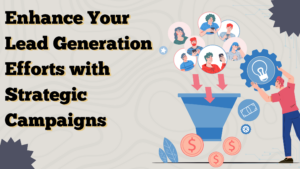How One Accounting Firm Increased Leads by 77% While Cutting Ad Spend by Over Half
Business Model
B2B Accounting Firm
Time Frame
1/2025-4/2025
Overview
A growing accounting firm came to DemandGen.io in search of answers. They were investing in both Google Ads and Meta Ads, but despite consistent spending, they weren’t generating the lead volume—or the lead quality—they expected. While they believed they were following best practices, they couldn’t pinpoint why their campaigns weren’t working. That’s where we stepped in.
Challenges
● Campaigns were not producing a sufficient volume of quality leads
● Client was spending in the lower 25th percentile of their industry—making budget
allocation critical
● The Google Ads account had multiple campaigns diluting impact due to low traffic per
campaign
● Cost-per-click (CPC) on Google Ads was too high for the budget to be effective across so
many campaigns
● Meta Ads campaigns used content offers
that didn’t drive meaningful conversions
● The overall structure of the ad accounts lacked efficiency and direction
Solutions
We took a focused, data-driven approach:
● Consolidated Google Ads campaigns to focus budget on a single high-converting
campaign, improving spend efficiency and generating more clicks
● Used zip code, household income, and affinity interest targeting to attract higher-income
clients
● Identified that CPC limitations were preventing Google Ads campaigns from reaching
scale—consolidation helped solve that
● Relaunched Meta Ads with a previously successful evergreen content offer that had
historically delivered strong results
● Wrote new ad copy, rebuilt campaign targeting, and optimized ad structure to focus on
the best-performing audience segments
● Focused the campaign toward the firm’s ideal client persona, rather than casting a wide
net
Achievements
The results speak for themselves:
● Leads increased by 77% (78 vs 44)
● Ad spend decreased by 54 ($1,684.58 vs $3,648.13)
● Impressions rose 17% (20,000 vs 17,000)
● Clicks decreased by 35% , which reflected tighter audience targeting and improved lead
quality
Why This is Important
This case proves three important things:
1. Simply “doing” Google Ads or Facebook Ads is not a strategy—strategy comes from
how you use those tools.
2. A lower budget doesn’t mean you’re doomed to poor result—it just means your
campaigns need to be more strategic and efficient.
3. Ad account structure can make or break campaign performance. By consolidating
campaigns and focusing on the strongest-performing keywords and offers, this client
turned their advertising performance around.
If you have any questions about how you can improve your lead generation efforts, reach
out here.





